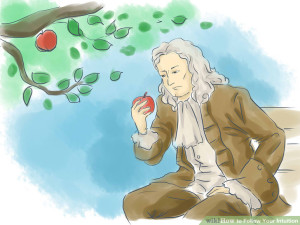 Intuition: The idea of mysticism can be defined as the belief that the most reliable source of knowledge or truth is intuition rather than reason, sense experience, or the scientific method. The mystic maintains that immediate and true knowledge is attained through a direct awareness that does not depend on systematic mental activity or sense impressions.
Intuition: The idea of mysticism can be defined as the belief that the most reliable source of knowledge or truth is intuition rather than reason, sense experience, or the scientific method. The mystic maintains that immediate and true knowledge is attained through a direct awareness that does not depend on systematic mental activity or sense impressions. Revelation: Revelation is a distinctive way of knowing in which what is revealed (knowledge or truth) is somehow beyond or separate from what is perceived by the senses or logically thought out. The idea is that there exists a store or source of knowledge external to human beings, and that at least some of that knowledge can be communicated to individual persons by unusual means not open to the ordinary channels of investigation. Frequently revelation is described as the communication of the Divine Will to human beings, of God breaking through to mortals in a very unique way. Knowledge may come like a bolt of lightning or by way of “a still, small voice.” In either case there is the suggestion of a distinctly different dimension a person comes to know. Historically, Christianity and Islam have placed strong emphasis on revelation and its epistemological authority. Prophets and lawgivers are believed to have shown exceptional sensitivity to this special dimension of knowing.
Revelation: Revelation is a distinctive way of knowing in which what is revealed (knowledge or truth) is somehow beyond or separate from what is perceived by the senses or logically thought out. The idea is that there exists a store or source of knowledge external to human beings, and that at least some of that knowledge can be communicated to individual persons by unusual means not open to the ordinary channels of investigation. Frequently revelation is described as the communication of the Divine Will to human beings, of God breaking through to mortals in a very unique way. Knowledge may come like a bolt of lightning or by way of “a still, small voice.” In either case there is the suggestion of a distinctly different dimension a person comes to know. Historically, Christianity and Islam have placed strong emphasis on revelation and its epistemological authority. Prophets and lawgivers are believed to have shown exceptional sensitivity to this special dimension of knowing.
Critique of Intuition and Revelation: Knowledge obtained through intuition and revelation is subject to criticism on the grounds that it is not always consistent, that different people have quite different awarenesses of the nature of truth, that there is no criterion for determining which is the better of two conflicting doctrines, and that for a vast number of human beings knowledge based on intuition is incommunicable (even if it is true) and therefore not generally available. Those who do not experience intuition or revelation and those who cannot accept the word (authority) of those who claim such experience must and do rely on some alternative way of knowledge. Source: INVITATION TO PHILOSOPHY: ISSUES AND OPTIONS
Source: INVITATION TO PHILOSOPHY: ISSUES AND OPTIONS